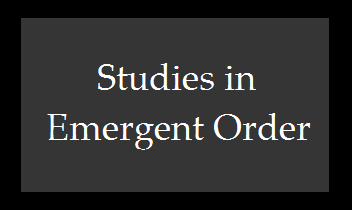- | Academic & Student Programs Academic & Student Programs
- | Journal Articles Journal Articles
- |
Lessons from Doing Bad by Doing Good for the Private Philanthropic Organization
Originally published in Studies in Emergent Order
In this paper I adopt a means-ends approach in which the stated end of a network of philanthropic organizations is taken as given. I then employ the political economy of state-led humanitarian action developed by Christopher Coyne in Doing Bad by Doing Good in service of understanding the obstacles faced by the private philanthropic organization.

Many donors and charitable organizations view philanthropy as more than an act of consumption. They consider themselves to be providing a valuable public good, or at least one they wish to see produced in excess of the quantity currently provided by the market. In this paper I adopt a means-ends approach in which the stated end of a network of philanthropic organizations is taken as given. I then employ the political economy of state-led humanitarian action developed by Christopher Coyne in Doing Bad by Doing Good in service of understanding the obstacles faced by the private philanthropic organization. After briefly discussing the critical differences between state-led humanitarian action and private philanthropy, I propose three lessons for the private philanthropic organization. First, philanthropy should be viewed without romance. Second, there is no formula for philanthropic success. Third, philanthropic redundancies need not be wasteful.
Find the article online at Cosmos and Taxis.
To speak with a scholar or learn more on this topic, visit our contact page.

